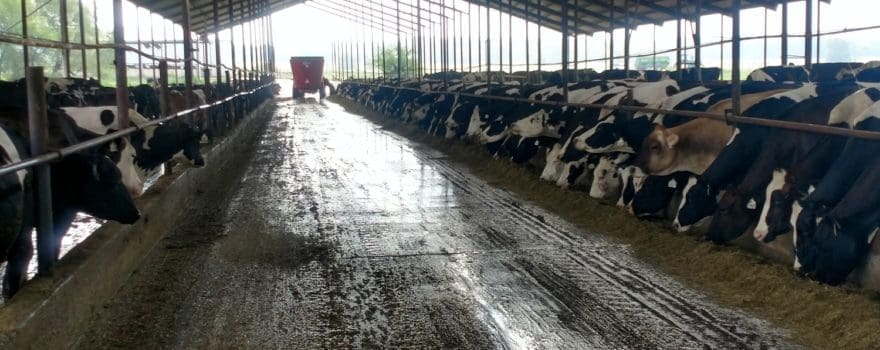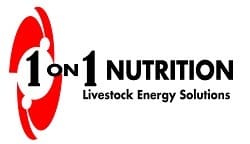
Alcohol animal feed from 1 on 1 Nutrition, specifically ethanol, is gaining attention as a potential supplement for dairy cattle due to its various advantages in improving animal nutrition and overall herd health. While it is important to use ethanol in moderation and with proper care, it can be a valuable addition to the diet of dairy cattle when used correctly. In this article, we will explore the advantages of alcohol animal feed for dairy cattle in detail.
1. Energy Source:
Ethanol is a highly concentrated source of energy, providing nearly twice as much energy as carbohydrates. This high energy content can be beneficial for dairy cattle, especially during periods of high energy demand, such as lactation. Ethanol can help meet the energy requirements of lactating cows, supporting milk production and maintaining body condition.
2. Increased Milk Production:
One of the most significant advantages of using ethanol in dairy cattle feed is its potential to boost milk production. Ethanol can be converted into volatile fatty acids (VFAs) in the rumen through microbial fermentation. These VFAs are an essential energy source for dairy cows and can enhance milk yield when supplied in adequate amounts. Increased milk production can lead to higher profits for dairy farmers.
3. Improved Feed Efficiency:
Ethanol can improve feed efficiency in dairy cattle. When used judiciously, it can enhance the digestibility of fibrous feeds and increase the utilization of other dietary components. This means that dairy cattle can derive more energy from the same amount of feed, resulting in cost savings for farmers.
4. Enhanced Digestibility:
Ethanol can help break down complex carbohydrates and fiber in the rumen, making them more accessible to microbial digestion. This increased digestibility can lead to improved nutrient utilization and, subsequently, better overall health and performance in dairy cattle.
5. Heat Energy:
During cold weather, dairy cattle require additional energy to maintain their body temperature. Ethanol can provide heat energy when metabolized, helping cows stay warm and comfortable during colder months. This is particularly important in regions with harsh winters, where maintaining cow comfort can be a challenge.
6. Reduced Risk of Acidosis:
Acidosis is a common metabolic disorder in dairy cattle caused by the accumulation of lactic acid in the rumen due to excessive carbohydrate consumption. Ethanol can help reduce the risk of acidosis by promoting a healthier rumen environment. It can be used as part of a balanced diet to modulate rumen pH and microbial activity, preventing acidosis-related issues.
7. Efficient Use of By-Products:
Ethanol production generates various by-products, such as distillers’ grains and solubles. These by-products are rich in protein and can be used as valuable feed ingredients for dairy cattle. Incorporating these by-products into the diet can provide a cost-effective source of nutrients while reducing waste from the ethanol production process.
8. Potential Replacement for Traditional Grains:
Ethanol can serve as an alternative to traditional grain-based feeds like corn and barley. With the growing demand for grain crops for human consumption and biofuel production, using ethanol as a feed ingredient can help reduce the competition between livestock and humans for these resources. This can contribute to sustainable agriculture practices and food security.
9. Enhanced Fertility and Reproduction:
Improved nutrition resulting from ethanol supplementation can have positive effects on reproductive performance in dairy cattle. Cows in good body condition and with sufficient energy reserves are more likely to conceive and maintain pregnancy. Ethanol’s role in providing energy and maintaining body condition can indirectly support reproductive success within the herd.
10. Reduced Methane Emissions:
Although it may seem counterintuitive, ethanol supplementation has the potential to reduce methane emissions from dairy cattle. Methane is a potent greenhouse gas produced during the fermentation of feed in the rumen. Ethanol can alter rumen fermentation patterns, reducing methane production and mitigating the environmental impact of dairy farming.
In conclusion, alcohol animal feed from 1 on 1 Nutrition, particularly ethanol, offers several advantages for dairy cattle when used responsibly and as part of a well-balanced diet. It can serve as a valuable source of concentrated energy, enhance milk production, improve feed efficiency, and support overall herd health. However, it’s crucial to note that ethanol should be used in moderation and with proper management to avoid potential negative side effects, such as intoxication or digestive disturbances. Farmers considering ethanol supplementation for their dairy cattle should consult with nutritionists or veterinarians to develop a suitable feeding strategy tailored to their specific herd’s needs. If your needing a Longview, Texas Realtor, give Nicole a call.
